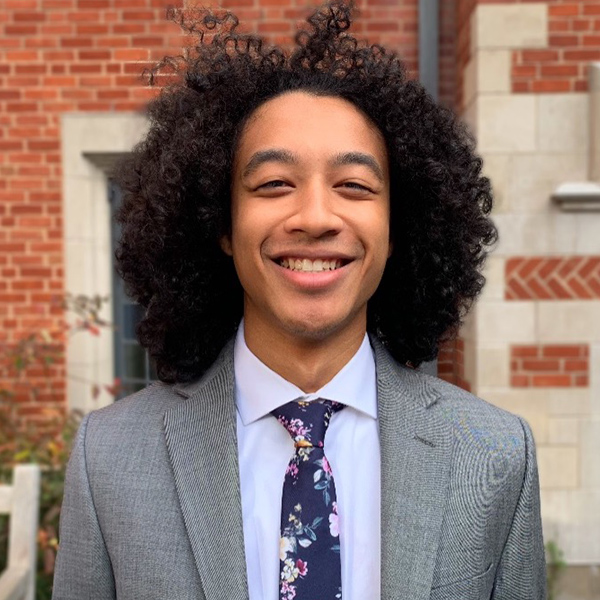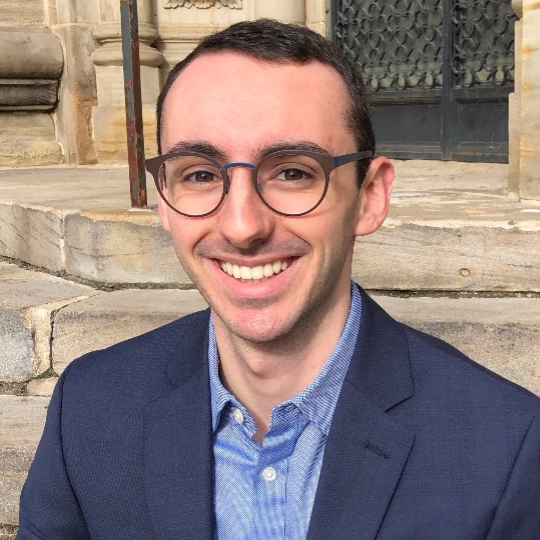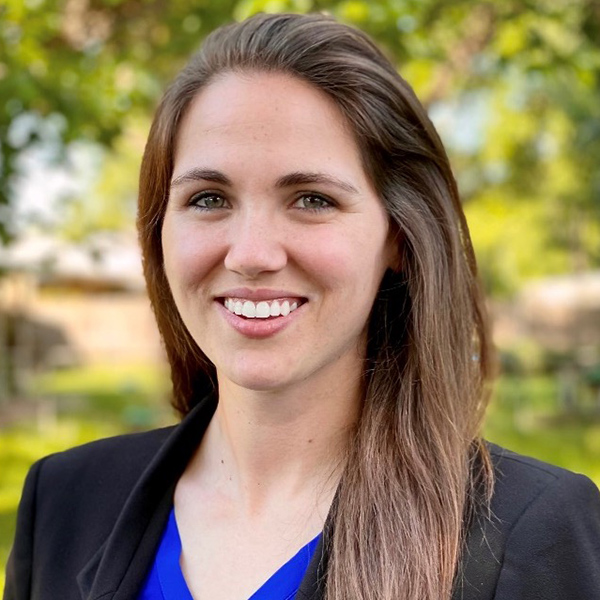
JT Mullins ’23 is majoring in Ethics, Politics, and Economics
What made you interested in the Grand Strategy program?
I was interested in GS for a couple of primary reasons. The first was its focus on practice; many classes, in my experience, are primarily focused on theoretical and analytical skills. While Grand Strategy requires these as well, its focus on the applications and limits of theory through an extremely pragmatic lens is very unique and rewarding. The modules also extend this facet of the program, since you engage with practitioners and case studies in a grounding and rewarding environment. Finally, the yearlong nature of the program means that you can develop meaningful academic and personal relationships with both your classmates and your professors.
What was the most exciting or rewarding part of the GS class?
The most rewarding part of the GS class is definitely the people — I include not only my fellow students, but the practitioners (shoutout Kica Matos!) and Professor Brenes as well. It's been both exciting and humbling to be around so many people who are interested in applying classroom lessons to meaningful public service.
Why should students apply to the GS class?
Students should apply to GS if they have an issue that they really care about and would like to gain a framework for solving it. I especially encourage non-traditional GS students to apply — personally, I am interested in strategies for prison and police abolition, and I've been able to develop an extremely useful strategic lens through which to view my present and future work.

Bryce Morales ’23 is majoring in History and Molecular, Cellular, and Developmental Biology
What made you interested in the Grand Strategy program?
As a history major, I was drawn to the program in part for how it approaches history differently than most classes. I liked that there were opportunities to consider long-term or large-scale change and to think about how we might be able to use historical patterns and dynamics to inform our ideas about current-day policy—by deliberately identifying agents of change, available means, goals, and environmental constraints. I was also excited by the opportunity to learn from real-world practitioners and guest speakers who can talk about their firsthand experiences implementing the sort of strategic thinking and planning we discuss in class.
What was the most exciting or rewarding part of the GS class?
It has been wonderful to learn from a group of peers and guest lecturers with such diverse interests and insights. I think the diversity of backgrounds contributed to a range of interpretations and analyses of different strategies, which made for really substantive and rich discussions. In particular, it was fascinating to hear about the different ways that folks managed to apply strategic thinking and the principles we talked about in the spring semester to their summer research projects.
Why should students apply to the GS class?
The class teaches you to approach important situations in a new and more imaginative way. The central themes and ideas come from a variety of contexts—military history, social movements, global treaties, economics, and more—and they are widely applicable. For any student interested in making positive change in the world, it is valuable to be able to identify actors, characterize dynamics of political power, think about potential obstacles, and be able to craft a strategy for a given situation—which the Grand Strategy program teaches you to do intuitively. It's also a good opportunity to reflect on one or two issues that you find important and think about how strategy can help tp resolve them.

Zoe Kreitenberg is a J.D. candidate in Yale Law School’s class of 2024
What made you interested in the Grand Strategy program?
I was excited to be part of this signature Yale program in order to supplement my legal education with an understanding of policy, change, and global affairs.
What was the most exciting or rewarding part of the GS class?
My experience in Grand Strategy has brought meaningful relationships with faculty and students across the University and a chance to hear from practitioners in various fields. The program has also allowed opportunities to explore issues of political and strategic importance through coursework and funded research.
Why should students apply to the GS class?
Graduate students can gain broad insight on topics of strategic importance through the Grand Strategy program. I have used many lessons from the course to better understand current legal questions and issues facing our democracy.
